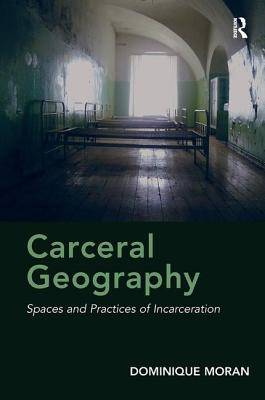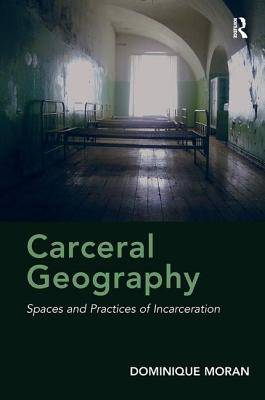
Je cadeautjes zeker op tijd in huis hebben voor de feestdagen? Kom langs in onze winkels en vind het perfecte geschenk!
- Afhalen na 1 uur in een winkel met voorraad
- Gratis thuislevering in België vanaf € 30
- Ruim aanbod met 7 miljoen producten
Je cadeautjes zeker op tijd in huis hebben voor de feestdagen? Kom langs in onze winkels en vind het perfecte geschenk!
- Afhalen na 1 uur in een winkel met voorraad
- Gratis thuislevering in België vanaf € 30
- Ruim aanbod met 7 miljoen producten
Zoeken
€ 62,45
+ 124 punten
Omschrijving
The 'punitive turn' has brought about new ways of thinking about geography and the state, and has highlighted spaces of incarceration as a new terrain for exploration by geographers. Carceral geography offers a geographical perspective on incarceration, and this volume accordingly tracks the ideas, practices and engagements that have shaped the development of this new and vibrant subdiscipline, and scopes out future research directions. By conveying a sense of the debates, directions, and threads within the field of carceral geography, it traces the inner workings of this dynamic field, its synergies with criminology and prison sociology, and its likely future trajectories. Synthesizing existing work in carceral geography, and exploring the future directions it might take, the book develops a notion of the 'carceral' as spatial, emplaced, mobile, embodied and affective.
Specificaties
Betrokkenen
- Auteur(s):
- Uitgeverij:
Inhoud
- Aantal bladzijden:
- 200
- Taal:
- Engels
Eigenschappen
- Productcode (EAN):
- 9781138308466
- Verschijningsdatum:
- 8/01/2018
- Uitvoering:
- Paperback
- Formaat:
- Trade paperback (VS)
- Afmetingen:
- 156 mm x 233 mm
- Gewicht:
- 369 g

Alleen bij Standaard Boekhandel
+ 124 punten op je klantenkaart van Standaard Boekhandel
Beoordelingen
We publiceren alleen reviews die voldoen aan de voorwaarden voor reviews. Bekijk onze voorwaarden voor reviews.









